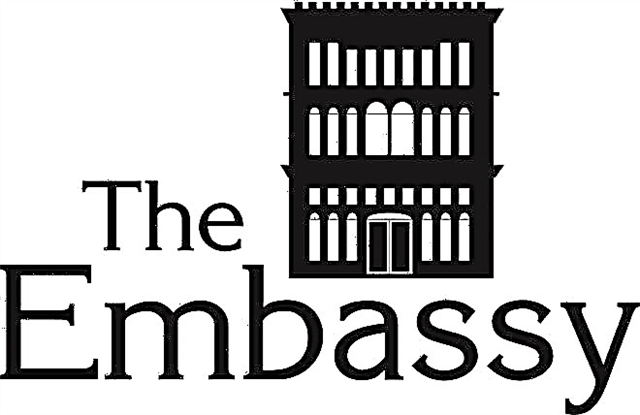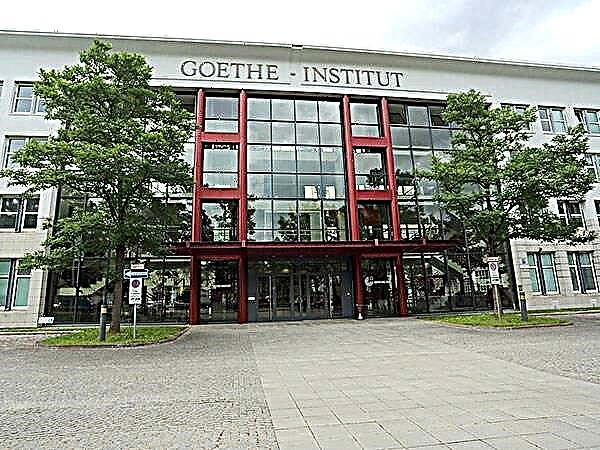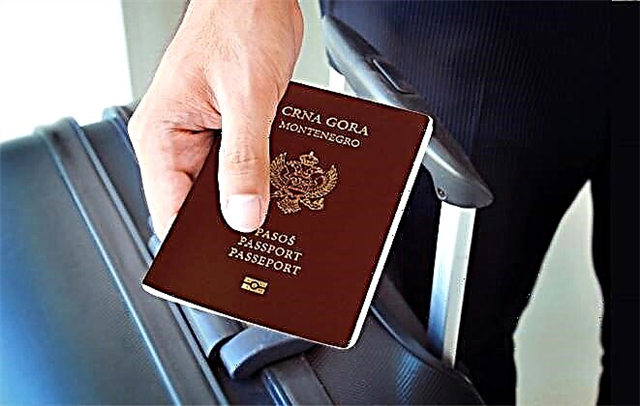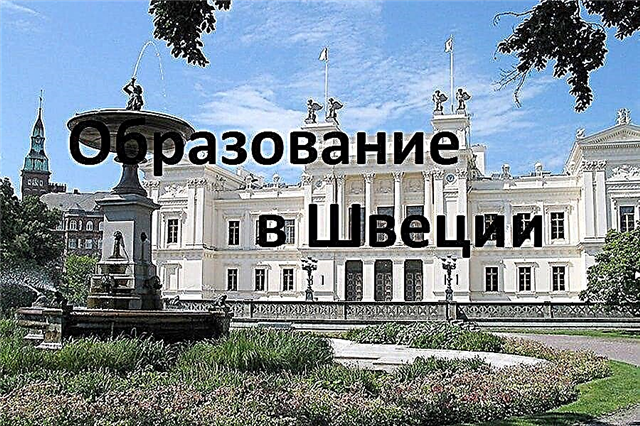The Swedish education system is one of the most developed in Europe and is considered one of the most prestigious in the world. Thanks to the progressive and effective methods used in universities, Swedish diplomas are accepted in any country without additional confirmation.
The Swedish government pays great attention to inclusive education for all segments of the population. All areas of education, from preschool to college, are free for citizens of the country. Also, preferential training programs for EU residents are working successfully. The cost of paid education is relatively low compared to other European countries. Most of the population is fluent in English, and in many universities there is an opportunity to use this language in teaching.
Higher education in Sweden
Among the most popular universities in the country are the world famous Stockholm and Karolinska Universities.
Studying in Sweden is one of the grounds for obtaining a residence permit.

The state policy is aimed at increasing the availability of education for people of all ages and social status. Students in the course of their studies can officially apply for material assistance or study loans. This right is reserved for students under the age of 54.
There are three programs adopted in Sweden with different periods of study:
- Bachelor's degree - 3 years;
- Master's degree - 1-2 years;
- Doctoral studies - approximately 4 years (the term may vary at different universities).
The academic year is divided into two semesters:
- September to January;
- January to June.
There are several vacation days between semesters. The educational process is allocated 40 hours a week. Moreover, most of the study time consists of self-study.
The study programs for each degree consist of several subjects, for the passage of which a certain number of credits are awarded according to the European ECTS system. A semester can consist of one large course or several smaller courses. Students are eligible to apply to complete the full degree program or just a specific course of study, which includes lectures, seminars and labs.

You May Also Like
In the course of training, students receive both extensive theoretical knowledge and deep practical skills in the selected areas. The examination takes place using oral or written tests.
Education programs
There are two main types of higher education institutions in Sweden - universities and university colleges. Both types produce students with bachelor's degrees. The university also offers the possibility of obtaining a doctorate or a master's degree.
Education under the bachelor's program takes place on the basis of complete secondary education. For admission, you will need a certificate or diploma from a technical school. The easiest way to enter a Swedish university for a bachelor's program is to use the two-way academic exchange system. The second option is to do it yourself.
The bachelor's degree gives the owner the opportunity to apply for leadership positions in any country in the world.
Admission to the master's program takes place on the basis of a bachelor's or specialist's diploma. Some programs require a diploma in the same field as the planned study.
Graduates with a bachelor's degree can enroll in graduate school and receive a doctoral degree, but preference is given to masters. For admission, in addition to a diploma and grades, it may also require the student's scientific work or publications in the chosen field.
There is no fixed enrollment for graduate school. The applicant must track the information himself and find free places. Postgraduate students are recruited not only by universities, but also by practicing professors.
Conditions for admission
It is possible to enter the University of Sweden on the basis of 11 classes. The main document is the school leaving certificate. For applicants from the CIS countries, you will need to provide the results of the exam or examinations. Academic achievement is the most important criterion when considering an application, since in most cases they are admitted to a university on a competitive basis without entrance exams. The decision is made on the basis of school grades.
Mandatory confirmed by a certificate IELTS or TOEFL IBT knowledge of the language.
List of documents
You can send documents for admission to foreigners to 4 universities at the same time. The package of documents should include copies of:
You May Also Like
- Certificate or diploma;
- Inserts with grades on progress;
- Language Proficiency Certificate;
- Passports.
To travel to study, you will need to apply for a student visa at the embassy. Since the entire registration process can take a lot of time, it is recommended to attend to the collection and submission of the necessary documents 1.5-2 months before the intended trip.
To obtain a visa you will need:
- Application form in Swedish or English;
- An invitation from a Swedish university;
- Certificate of enrollment in the course;
- International passport;
- Medical insurance for the duration of your stay;
- 2 color photographs;
- Bank statement confirming the availability of funds necessary for living;
- Receipt for payment of the consular fee.
Consular fee is 1500 rbl... In case of urgent registration, the amount is increased up to 3000 rubles... Exchange students are exempt from paying the fee.
Tuition fees in Sweden in 2021
All universities in the country set their own tuition fees. This applies to both government and commercial institutions. The price of training directly depends on the demand for the specialty. Medical and arts programs are usually the most expensive.

On average, the cost of studying for an undergraduate program can fluctuate from 9,000 to 18,000 dollars... However, in some universities it reaches 100,000 dollars.
The cost of studying for a master's degree is practically the same as for a bachelor's degree. In addition, all students must pay administrative bills, which amount to approximately 900 dollars.
Postgraduate studies are free for all students, as the graduate student is considered to be a full-fledged employee. In some universities, these students receive a small salary.
Free education
Since 2011, free education in Sweden has been available only to citizens of EU countries. Students from the CIS countries must pay for their studies in full. An exception is made by exchange students.
Scholarships and grants
All students, including foreigners, can apply for a university scholarship. The scholarship can cover 15 to 100% of the tuition fees. To qualify for payments, the student must send documents and a written application to the university administration.
Usually, scholarships are selected on a competitive basis, and only students with high scores can expect to receive payments.
In addition to academic performance for foreigners, there are a number of conditions for obtaining a scholarship:
- The student must have lived in the country for less than 2 years;
- The applicant must not have a residence or work permit;
- The applicant must not be a participant in another scholarship program.
Many non-profit organizations provide assistance to foreign students in the form of awards and grants. A list of such proposals is posted on the official website of the university. The minimum grand is 15,000 dollars, the maximum reaches 200 000.
Preference for granting grants and granting scholarships is given to graduate students.
Features for internship and study exchange programs
In addition to free tuition, exchange students receive university support in the form of a dorm room and scholarships. Each such student is assigned a curator (a student of the same university), who helps him get used to and adapt to new conditions.

Another feature is group internships, which allow you to look at the subject from different angles and provide an opportunity to gain more versatile knowledge and extensive practice.
Accommodation and meals for students
Most universities in Sweden do not provide housing for students. They should take care of the issues of finding a place of residence themselves, preferably in advance. At the same time, on the basis of each institution, there are student organizations that assist students in their search for housing.
On average, you will need to pay for housing 350 dollars a month and more 400 for food.
For exchange students, the learning conditions are much more loyal. They are provided with dorm rooms free of charge, and some universities take care of the food.
Prestigious universities in the country
Sweden has a huge number of universities offering a variety of study areas.
Most popular universities in Sweden
| University name | Year of foundation | Description, official site | Number of students | Language of instruction |
| Lunds universitet | 1666 | Lund University has 7 faculties and 800 courses. | 35 000 | Swedish English |
| Stockholms universitet | 1960 | Stockholm University has 67 faculties in the humanities. | 50 000 | Swedish English |
| Kungliga Tekniska högskolan | 1970 | The Royal Institute of Technology offers 50 Master's degree programs. It is considered the second largest university in the country. | 12 000 | Swedish English |
Reviews about studying in Sweden
Student of KSU "NUA" Evgeniya Zhivolup. “I spent one semester in Sweden under the cooperation program. All expenses and hassle of registration, accommodation and even food were taken over by the sponsoring company. The first thing I noticed is that Swedish students are much older than Russians. They begin their studies at the age of 20.
I was very pleased with the training system. It differs from the one I am used to in Russia. Nobody focuses on memorizing large volumes of theoretical material. Seminars and lectures do not take much time. The main focus is on hands-on group lessons. At the same time, the possibilities for self-training are practically unlimited. "
Elena Krivovyaz, 30 years old. “I submitted documents to 4 Swedish universities at once. In early May, Stockholm University accepted me, which was my priority. I had 2 weeks to decide whether I accept their proposal or not. I was very pleased that when I refused the first offer, I still had the opportunity to accept one of the invitations from other establishments. "
Sweden is considered the country with the most prestigious education system with a loyal attitude towards students. Despite the fact that free education has become unavailable for citizens of the CIS countries, the cost of education in Sweden is much lower than in other EU countries. In addition, government and commercial organizations of the country are ready to provide scholarships and grants to students who show talents and desire to learn.











